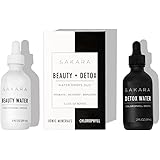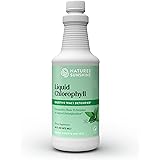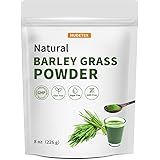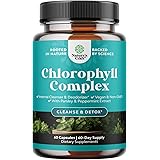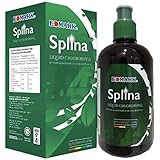The journey toward effective weight loss often feels complex, with countless variables influencing success. Many individuals find themselves struggling despite consistent effort, often overlooking a critical factor: elevated cortisol levels. High cortisol, frequently dubbed the “stress hormone,” significantly hinders your body’s ability to shed unwanted weight, especially around the midsection. Fortunately, as highlighted in the video above, a simple yet powerful amino acid called glycine offers a remarkable solution to help lower cortisol for weight loss and improve overall well-being.
Understanding the intricate link between stress, cortisol, and metabolic health is paramount for achieving sustainable weight loss. This comprehensive guide delves deeper into the profound impact of cortisol and reveals how strategically incorporating glycine can transform your weight management efforts. We will explore the mechanisms behind glycine’s cortisol-reducing effects and uncover its additional benefits for sleep, recovery, and overall metabolic balance.
The Pervasive Problem of High Cortisol in Weight Loss
Cortisol is an essential hormone produced by your adrenal glands, playing a vital role in regulating metabolism, reducing inflammation, and helping your body respond to stress. However, chronic stress, whether from work pressures, emotional turmoil, or physical strain, keeps cortisol levels persistently elevated. This sustained elevation creates a cascade of negative effects that directly impede your weight loss progress.
Imagine your body constantly being in a fight-or-flight state; this is what chronic high cortisol feels like internally. It signals your body to conserve energy and store fat, particularly visceral fat around the abdomen, which is metabolically active and dangerous. Elevated cortisol can also lead to increased cravings for high-sugar, high-fat comfort foods, making dietary adherence incredibly challenging. Furthermore, it often contributes to insulin resistance, making it harder for your body to manage blood sugar effectively and promoting further fat storage.
Persistent cortisol excess breaks down muscle tissue, which is metabolically active and crucial for a healthy metabolism. Losing muscle mass decreases your resting metabolic rate, making it even harder to burn calories. This creates a vicious cycle where stress leads to high cortisol, which then sabotages your weight loss efforts, creating more stress. Addressing this underlying hormonal imbalance becomes a crucial step in unlocking your body’s potential for successful and sustainable weight loss.
Glycine: A Powerful Ally for Managing Cortisol Levels
Glycine is classified as a non-essential amino acid, meaning your body can produce it, but often not in sufficient quantities, especially during periods of high demand. This vital amino acid plays numerous roles within the body, including protein synthesis, neurotransmitter function, and detoxification. Significantly, glycine exhibits a remarkable ability to help effectively reduce elevated cortisol levels.
The mechanism behind glycine’s cortisol-lowering effect is multifaceted and directly impacts your nervous system. Glycine acts as an inhibitory neurotransmitter in the central nervous system, meaning it helps to calm the brain and promote relaxation. By interacting with specific receptors, glycine can reduce neural excitability, counteracting the stimulating effects of stress hormones like cortisol. Imagine feeling a gentle calming wave wash over your nervous system, allowing it to de-escalate from a state of constant alert.
This calming action directly translates to a reduction in the body’s stress response, signaling to your adrenal glands that they do not need to produce as much cortisol. Effectively managing cortisol is not just about reducing stress, but also about improving your body’s metabolic environment. A balanced cortisol level creates a more favorable hormonal landscape, making it easier for your body to mobilize fat stores and burn calories more efficiently. Incorporating glycine into your daily routine provides a proactive strategy for maintaining hormonal equilibrium.
Beyond Cortisol: Glycine’s Broader Wellness Benefits
While glycine’s role in lowering cortisol for weight loss is incredibly impactful, its benefits extend far beyond stress management. This versatile amino acid significantly contributes to improved sleep patterns, a critical component often overlooked in weight management strategies. Glycine promotes deeper, more restorative sleep by reducing core body temperature and influencing neurotransmitter activity that signals relaxation.
Imagine falling asleep more easily and waking up feeling genuinely refreshed; this improved sleep quality positively impacts your energy levels and reduces daytime cravings. Furthermore, glycine plays a crucial role in post-workout recovery, which is vital for anyone engaging in physical activity for weight loss. It is a key component of collagen, the most abundant protein in your body, essential for healthy joints, tendons, and muscles.
Adequate glycine intake supports muscle repair and reduces exercise-induced muscle damage, helping you recover faster and perform better in subsequent workouts. Consider its contribution to overall metabolic health, including blood sugar regulation. Glycine can enhance insulin sensitivity, assisting your body in processing glucose more efficiently and potentially reducing fat storage. It also supports liver detoxification processes, further contributing to a healthier internal environment conducive to weight loss and overall vitality.
Situations That Increase Your Body’s Need for Glycine
While glycine is a non-essential amino acid, certain life situations significantly increase your body’s demand, making external supplementation or dietary focus highly beneficial. Recognizing these periods of heightened need can help you proactively support your body and maintain optimal health. Emotional and physical stress are major contributors to increased glycine requirements.
Prolonged periods of anxiety, demanding work schedules, or even intense physical training can deplete your body’s glycine reserves. Consider the continuous biochemical processes involved in stress response, all of which consume amino acids. Recovery from physical trauma, such as injuries, surgeries, or extensive burns, also places a substantial demand on glycine. This amino acid is critical for tissue repair, collagen synthesis, and supporting the immune system during healing.
Additionally, high blood sugar levels can increase your body’s need for glycine. Glycine plays a role in glucose metabolism and insulin sensitivity, meaning your body may utilize more glycine to try and regulate blood sugar. Individuals with conditions like insulin resistance or type 2 diabetes might benefit significantly from increased glycine intake. Being aware of these demanding scenarios allows you to adjust your dietary or supplemental approach to maintain optimal glycine levels.
Incorporating Glycine Into Your Diet for Better Health
Ensuring an adequate intake of glycine through your diet is a fundamental step toward managing cortisol and supporting your weight loss goals. Fortunately, many delicious and nutritious foods are excellent sources of this beneficial amino acid. Red meat, including cuts like beef, lamb, and venison, provides a substantial amount of glycine.
Eggs are another readily available and versatile source, offering a good balance of amino acids. Collagen, found in bone broth, gelatin, and specific collagen supplements, is particularly rich in glycine due to its unique amino acid profile. Poultry, such as chicken and turkey, along with pork, also contribute significantly to your daily glycine intake. Imagine preparing a savory bone broth soup or adding a scoop of collagen powder to your morning smoothie, effortlessly boosting your glycine levels.
Prioritizing these protein-rich foods in your meals helps meet your body’s demands for glycine and supports overall muscle maintenance. Consider including a variety of these sources throughout your week to ensure consistent intake. For those seeking additional support, especially during periods of high stress or intense physical activity, glycine supplementation can also be an effective strategy to ensure optimal levels. Always consult with a healthcare professional before starting any new supplement regimen.


